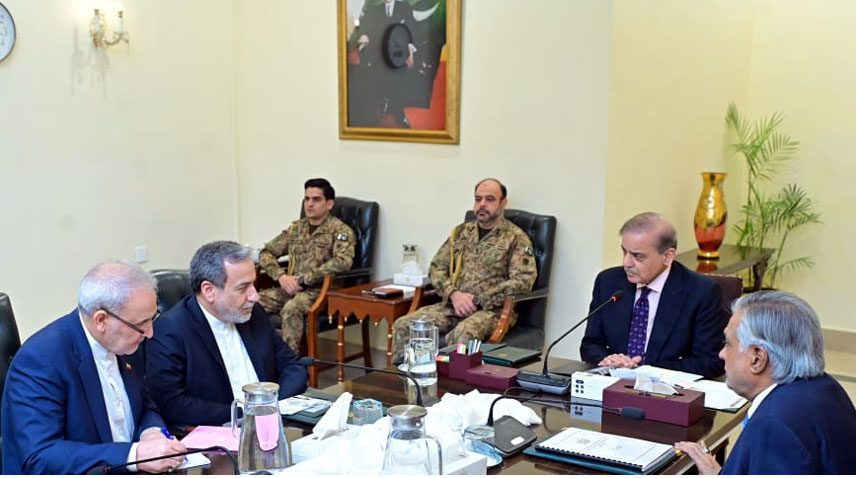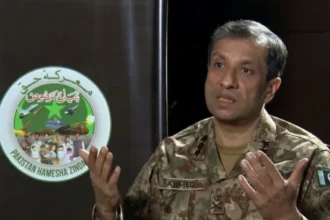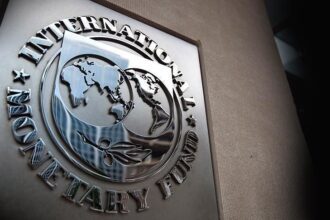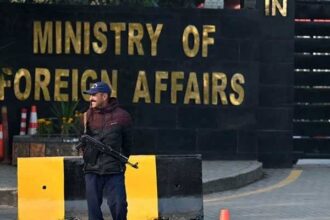Pakistan, Iran reaffirm regional cooperation in the wake of South Asia tensions
Prime Minister Shehbaz Sharif has warned that India’s weaponization of the Indus Waters Treaty is “unacceptable” and constitutes a red line for Pakistan, as he reiterated Islamabad’s commitment to regional peace in a meeting with Iranian Foreign Minister Seyed Abbas Araghchi on Monday.
During their meeting at the Prime Minister House, PM Shehbaz expressed deep condolences over the recent tragic explosion in Bandar Abbas, which claimed dozens of lives and injured hundreds in Iran. He extended his heartfelt sympathies to the people of Iran and offered support during this time of grief.
Tensions Escalate Over Pahalgam Incident
PM Shehbaz also addressed the growing regional tensions following the Pahalgam incident, which India has used to cast accusations toward Pakistan. He categorically rejected any linkage of Pakistan to the incident in the absence of credible evidence.
“Pakistan has offered to cooperate with an international, neutral, and credible investigation to determine the truth,” he stated.
The Prime Minister criticized India’s increasingly aggressive posture, accusing New Delhi of undermining peace efforts in South Asia.
Indus Waters Treaty: A Sensitive Red Line
In strong words, PM Shehbaz underscored that India’s manipulation of water flows under the Indus Waters Treaty amounted to a weaponization of a humanitarian issue, warning that it crosses a dangerous threshold.
“This is a red line for the people of Pakistan,” he said, adding that water should never be used as a tool of political pressure or regional dominance.
Iran-Pakistan Ties and Regional Stability
Iran’s Foreign Minister Araghchi conveyed warm greetings from Supreme Leader Ayatullah Ali Khamenei and President Masoud Pezeshkian, reaffirming Iran’s commitment to strong bilateral ties with Pakistan.
Both leaders emphasized the importance of regional cooperation to counter growing instability and pledged to work closely to promote peace, economic development, and shared security interests.
“Iran will continue to play its role in fostering stability in South Asia,” said Araghchi.
The meeting highlighted the strategic significance of Tehran-Islamabad relations, especially as both nations navigate a volatile regional landscape marked by geopolitical rivalries, cross-border challenges, and economic concerns.














